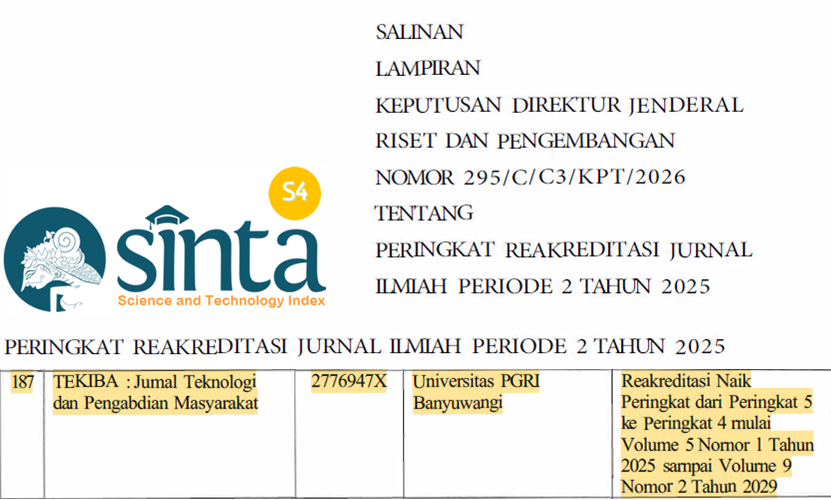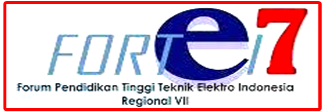Edu-Game Sebagai Media Pembelajaran Pendidikan Anak Usia Dini Di Taman Kanak-Kanak Dharma Wanita 56
DOI:
https://doi.org/10.36526/tekiba.v1i2.1620Keywords:
Educational Game; Mobile GameAbstract
Educational games are very interesting to develop because of the visualization of real problems. Based on the pattern possessed by the game, players are required to learn so that they can solve existing problems. Game status, instructions, and tools provided by the game will guide players actively to explore information so that they can enrich their knowledge and strategies while playing. Development of mobile game applications as an alternative learning media to recognize symbols, count, match pictures and arrange random words as an alternative medium for early childhood education for teacher learning in changing conventional learning methods to learning simulation games, so as to develop children's creativity, because in educational games have elements of challenge, accuracy, reasoning and ethics.
References
Li, N. 2017. Study on the Interaction between Music and Games in Preschool Music Education. 2nd International Conference on Education, E-learning and Management Technology, pp. 214–218
Clark, R. E. dan Choi, S. 2005. Five design principles for experiments on the effects of animated pedagogical agents. Journal of Educational Computing Research. Pp 1-8
Fitri, A. 2017. Perencanaan Pembelajaran Kurikulum 2013 Pendidikan Anak Usia Dini. POTENSIA. Pp 1-7
Mergel, I., Edelmann, N., & Haug, N. 2019. Defining digital transformation: Results from expert interviews. Government Information Quarterly. Pp 1-8
Means, B., Toyama, Y., Murphy, R., & Baki, M. 2013. The effectiveness of online and blended learning: A meta-analysis of the empirical literature. Teachers College Record, vol 115(3), pp 1-47
Lalima., kirana lata dangwal. 2017. Blended learning: an innovative approach. Universal Journal of Educational Research vol 5(1) pp 129-136
Picciano, A. G., Dziuban, C., & Graham, C. R. 2014. Blended learning: Research perspectives,New York: Routledge. vol. 2. Pp 1- 10
WHO. 2020. Coronavirus disease (COVID-2019) situation reports. World Health Organisation.
Lee J. 2020. Mental health effects of school closures during COVID-19. The Lancet Child & Adolescent Health. vol. 4(6):pp.421
Purba, D.W. and Ramadhani, Y.R. 2020. Pandemik COVID-19: Persoalan dan Refleksi di Indonesia.
Wicaksono V. D. dan Rachmadyanti,.2016. Pembelajaran Blended Learning melalui Google Classroom.Seminar Nasional Pendidikan, pp. 513–521.
Barno A, Yokutkhon I, Feruzaxon Y, and Makhliyo I, 2020. Methodology of Using Game Technologies in Preschool Education, vol. 29, no. 7, pp. 2242–2245
Downloads
Published
Issue
Section
License
Copyright (c) 2021 Gayatri Dwi Santika

This work is licensed under a Creative Commons Attribution-ShareAlike 4.0 International License.










